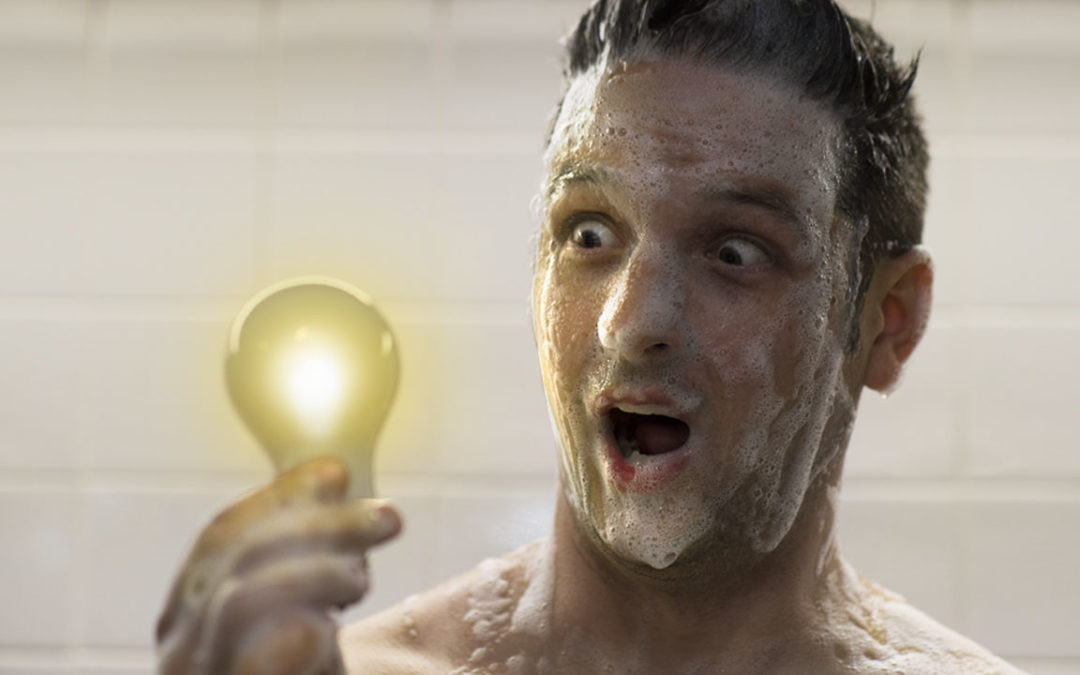So you’ve written a screenplay. It was a passion project for you, and it was a great learning experience. Better yet, it landed you a meeting with a big time producer! You go in and pitch your script, and things seem to be going well. When you finish, she nods approvingly and says, “Not bad. What else you got?”
Uh oh.
It happens all the time. You’ve been so focused on your passion project that you haven’t developed anything else nearly as brilliant or original. If you walk into a meeting without multiple pitch-ready ideas you could be throwing away a great opportunity.
Luckily your friends at Lunacy Productions are here to help! We know that you can never have enough good ideas, so here are five creative ways to find your next great story.
1. Keep a Dream Journal
Our dreams are a direct window into our subconscious. All of our hopes and fears, our greatest passions and most human neuroses, bubble up into our sleeping minds. As storytellers we strive to find themes, characters, images, and feelings that resonate with our audience on a primal level, and there’s no better place to hunt them than in our dreams.
Start every day by writing down everything you can remember from the previous night. The weirder and more bizarre, the better! Describe moments, feelings, locations, sounds, and people. The more often you write the better able you will be to remember your dreams. You may even find yourself experiencing lucid dreams! Consulting a dream dictionary can help assign meaning to the elements of your dreams, which can, in turn, develop themes, characters, or story.
2. Walk through a cemetery
You can surmise a lot about a person’s life from their headstone and its proximity to others. Look for headstones with portraits, unusual quotes, or intriguing objects left in their memory. Who is this person buried next to? Is their spouse buried close by, far away, or maybe they’re next to their spouse from a second marriage? Do they have children or other family nearby? Watch visitors coming and going. How long do they stay, and what have they brought for their loved ones? Write down interesting names and look them up on the internet for some historical accuracy. Or, simply use the small amount of information you observe and let your imagination do the rest!
3. Utilize the “48 Hour Film” model
The 48 Hour Film Project is a filmmaking competition that takes place in various cities over the course of 48 hours. Entrants are given a character (e.g., “Liz Bootley, Contractor”), a line of dialog, a prop, and then they draw a genre out of a hat. While the resulting films vary wildly in quality, ideation is never a problem. The random story elements and the 48 hour deadline force contestants to push past the typical mental roadblocks and just get to work!
You don’t need a festival to try this method yourself. Write down several objects, occupations, genres, and a sentence or two (try a Random Sentence Generator or flip to an arbitrary page in a book), throw them all into a hat, and let random chance be your guide! Don’t overthink it. Write down as many ideas as you can in 15 minutes, then draw a new set of parameters and repeat. Sure, you’ll write a lot of gibberish, but you’ll also surprise yourself with some completely original ideas.
4. Window shop at a thrift store or antique mall
Nothing gets your imagination stirring like looking through a hodge-podge of previously owned goodies with no context attached to them. Old children’s toys, once loved, now abandoned; books with dog-eared pages or annotations; unique curios or strange folk art. Imagining the timeline of a random object can begin to paint a picture of the owner and how they lived. Build these imaginary characters in your mind, and then allow their story to unfold.
5. Unplug
One of the biggest impediments to coming up with new and original ideas is that we are almost constantly bombarded by other information. Smartphones have made our lives incredibly convenient, but they’ve also put our brains in a state of information overload. We check emails, exchange texts, scan facebook, surf the web, listen to podcasts, and play video games. We can’t escape at work, in the car, even in the shower. But we can only truly focus on one thing at a time, so this constant external stimulation actually hinders creativity.
Give yourself some time for quiet reflection each day. Turn off the TV, shut the laptop, and most importantly, banish your cell phone somewhere out of sight and out of mind. Give yourself some time alone with your thoughts (but be careful not to let this peaceful time turn into a nap!). Mindfulness training has been shown to actually boost creativity and change brain chemistry, and many top companies use meditation to help their employees avoid burnout and do their best work.

